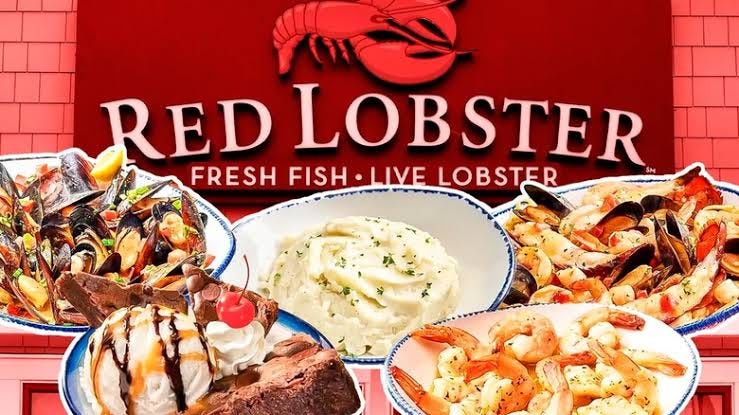Reader feedback
Andrew writes:
Very disappointing research on the catering. 5/10?? Jesus, a 1.5 at best. What were those turd like looking things to the right? That pizza bread looked like cardboard with some Heinz ketchup & waste paper on the top. The quiche things looked OK. The sweet chilli sauce? Lidl must have reached NZ. 10/10 for the NZX. Any chance of an activist? That independent pay research is a bigger joke than Nick McKim.
Andrew, you’re right — the catering was probably more like a 2/10 — I guess I was feeling generous. One other reader wrote to me that she found the tomato sauce “disturbing” and the pizza bread “limp”, while another asked whether they offer things like cheese and olives in New Zealand (clearly not at the NZX).
I am told, from a reliable source, that the scones at the NZME ASM were quite good.
The song trust formerly known as Hipgnosis
I wrote to you a bit ago about Hipgnosis Songs Trust, which was founded by former music manager Merck Mercuriadis in 2018 — they own the Red Hot Chilli Peppers catalogue, Sharakria’s, Ed Sheeran’s, etc. As we so often say — “it was a good idea at the time”. And it was — lots of people listen to music; music generates royalties; there is very little upkeep on a song once it’s recorded — it just exists as pure data. That’s beautiful. As the Ack Man loves to say — music is the cheapest form of content available to man (a Spotify subscription is, what? $16.99? Cheaper than Netflix).
Anyway, the idea was good but they paid too much and took out too much debt (the usual story in the era of easy money). They also had some looney tunes-type valuations on their portfolio (who doesn’t?) though that valuation found some gravity in recent times — earlier, in March, Shot Tower Capital revalued the portfolio down about 26%. All in all, the company had a lot of assets in theory — it was just a shame they couldn’t do much with them (they suspended the dividend too — so much for ‘income generating assets’)
I wrote that it may be an interesting speculative situation. Clearly the company couldn’t continue in its current state — it’s the proverbial one legged man in an ass-kicking contest. We thought it might be worth about 90p or so — at the time it was trading around 70p, so it was one of Ben Graham’s “Jewish treasury bills” if a takeover happened. Well — praise the investment gods — overnight Hipgnosis received a 93p per share takeover offer from US-based Concord Chorus. Concord also owns Round Hill Music, which owns the rights to songs by Gil Scott-Heron, Craig David, Massive Attack and Stephen Sondheim (you can’t accuse them of not being eclectic). A nice little contributor to our global model portfolio — our return for the stock is +51% — see below..
We love to see it — only wish the position had been bigger! (It’s always that way). We still like exposure to music via UMG, WMG and Sony (least preferred is Sony — so many moving parts; UMG and WMG are pure-play). Speaking of music…
Tay Tay crosses the picket line
I am not really a Taylor Swift fan — I don’t get it. But if you’ve been onto the brainro- onto TikTok in the last month or so you’ll know that UMG is at war with the app. TikTok like to pay less money to UMG. UMG is controlled by Lucian Grainge, who wouldn’t look out of place in The Gentlemen. Lucian is a strongman. He has lived through the era of records, tapes, CDs, Apple Music, streaming, and he is uniquely prepared to take a stand against what really is the world’s pre-eminent social media platform (sorry not sorry, Zuck). UMG pulled their music from TikTok a bit ago and up until recently that included T-Swizzle’s music (Taylor owns her masters, but UMG looks after the marketing and distribution).
Taylor has a new album coming out. Taylor looks after Taylor. TikTok is probably the single best promotional medium out, right now. So naturally, of course, her music is available on TikTok in spite of UMG’s boycott. I mean — it’s a smart publicity move, and a not great move to her fellow artists!
I guess this illustrates two things — i) TikTok is too powerful a platform to ignore, even if you don’t use it. It’s a dopamine machine. Ii) In the past, the artist was subservient to the label — the label controlled all. Now the roles are flipped — Taylor Swift is a one-woman economy in her own right, who quite literally adds to the GDP of countries. But this is a very unusual position to be in — not many artists could do this.
Damien Hirst Theory
We actually saw a similar with happen a few years ago with the UK’s favourite enfant-terrible-for-the-monied-classes-who-send-their-children-to-Harrow, Damien Hirst. In 2008 he bypassed the gallery system and sold his worth direct at auction via Sotheby’s1. Quelle horror! Is Taylor Swift the music world’s version of Damien Hirst?
Of course — Hirst eventually returned to the fold, exhibiting at White Cube and Gagosian — sometimes, the system is bigger than you (worth noting that Hirst’s reputation isn’t what it used to be). Whether Swift returns to the fold is a more nebulous question — she owns her masters. Most artists don’t.
Red Lobster served too much shrimp
Say you are a restaurant chain and you want to encourage more people to buy stuff. This is a reasonable goal: maybe sales are slow, maybe people are spending less with interest rates the way they are, etc. If you are Red Lobster you might offer unlimited shrimp. You might charge $20 per person, and the reasonable assumption would be that most people will get full after some point, and you will end up making a profit anyway, because they buy drinks and sides and so on.
This didn’t happen with Red Lobster! They just reported an operating loss of $12.5mn for the fourth quarter. It wasn’t always this way — they had been turning a modest profit and their Big Genius Idea was to offer endless shrimp, all day, every day — here’s their CEO back then:
“Here we have a very, very bold proposition for the consumers in the U.S.,” Garnier said. “It's $20, so it's really affordable. … The profitability will be decreasing a bit because we are decreasing the overall check. But we do expect the situation to improve overall.”
I mean, the profitability decreasing a bit is maybe a smidge optimistic. The situation, obviously, did not improve overall. It sort of went the other way — a $12.5mn loss on a restaurant empire founded on dine-in restaurants and lobster — that isn’t good!
The amazing thing here is that traffic to Red Lobster only increased 4% — some of that might be the 4% going for the unlimited shrimp, but most of them probably were already going for the endless shrimp. That’s a real cost!
What went wrong here? Lots of chains offer an “endless” item — Olive Garden, famously, offers endless breadsticks (the incredible, inimitable Helen Rosner writes well about Olive Garden here, in her near-perfect article, “Christ in the Garden of Endless Breadsticks”). I mean — part of the issue is obvious — shrimp is more expensive than breadsticks. Also, breadsticks are going to fill you up much faster (carbs!) Also — more importantly — the cost of living is a lot higher than it used to be; if you want a nice time out, maybe you are going to buy endless shrimp!
Anyway — now the restaurant chain is mulling bankruptcy. Do we live in a simulation? “Chain mulls bankruptcy due to all you can eat shrimp offer”: lol. I don’t have any special any economic insight here, other than it is a kind of absurd situation — I would hate to be the CEO talking to lenders right now — “well, guys, uh, people ate too much shrimp”.
As always — glad I’m not the owner. Better things one can buy…
https://www.wsj.com/articles/SB122161315980646011?st=8ze1a2wgeytg28o&reflink=article_copyURL_share








